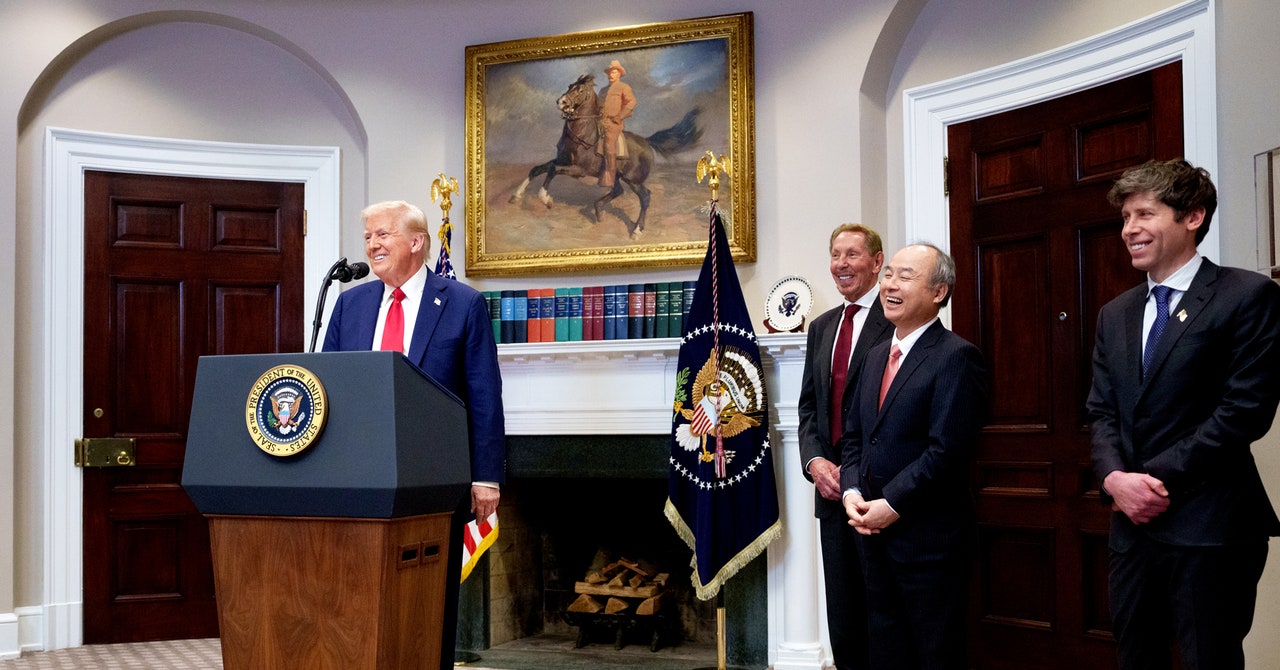
The wheels are already beginning to turn on Donald Trump’s plan to make the US into the “crypto capital of the planet” following his return to the White House.
In an executive order signed Thursday, Trump established a “working group on digital asset markets,” which will be responsible for weighing the possibility of the US forming a “strategic national digital asset stockpile,” among other things.
The promise to establish a stockpile was one of numerous commitments made by Trump to the crypto industry before he was reelected. Though the idea stumped economists, it received a rapturous reception among bitcoiners. As rumors of an impending announcement spread Thursday, the price of bitcoin climbed to $105,000 per coin, just short of the record high.
The order also requires the working group—which will comprise the leaders of various government branches, financial regulatory bodies, and the attorney general—to come up with an appropriate set of regulations and laws governing the use of crypto.
Earlier in the week, on Trump’s second day in office, the Securities and Exchange Commission—the US regulatory body that brought a volley of lawsuits against crypto firms under the Joe Biden administration—established a “crypto task force.” Under new leadership following the departure of former chair Gary Gensler, who was widely demonized in the cryptosphere, the SEC will develop a “comprehensive and clear regulatory framework for crypto assets,” the agency stated.
Later the same day, Trump granted clemency to Ross Ulbricht, who was serving life in prison for crimes committed while running the infamous darknet marketplace Silk Road, one of the first websites to accept bitcoin as payment. After being arrested in 2013, Ulbricht became something of a martyr in crypto circles for his part in spreading the bitcoin gospel.
These initial gestures signal Trump’s willingness to follow through on earlier campaign promises: to pass various crypto-related legislation, reform the financial regulatory apparatus in the US, and knit crypto into the US national treasury. The effects will be extensive, crypto figures believe, reverberating far beyond US shores and creating the conditions for a new golden era for the industry.
“Our technology is very powerful and transformative. We need to land it in different societies,” says Joseph Lubin, cofounder of Ethereum and chief executive at software company Consensys. “And America is a standard-setter for the rest of the world.”
Despite having previously spurned bitcoin as a “scam,” Trump now has extensive ties to the crypto industry, many high-profile members of which came out in support of his reelection campaign.
In the lead-up to the 2024 election, crypto organizations donated hundreds of millions of dollars to crypto-focused super political action committees, which spent the funds in support of crypto-friendly congressional candidates, many of them Republican.
On the campaign trail, Trump began to bill himself as the first “crypto president.” In July, in front of a rabid crowd of bitcoiners, Trump promised to turn the US into a crypto mining powerhouse and establish a national bitcoin stockpile if reelected. In the same speech, he pledged to fire Gensler, the SEC chair, prompting the most rapturous applause of the night.
https://media.wired.com/photos/67912b4d861690945ba6cd52/191:100/w_1280,c_limit/Trump-Crypto-and-More-Business-2194587015.jpg
2025-01-23 16:11:38